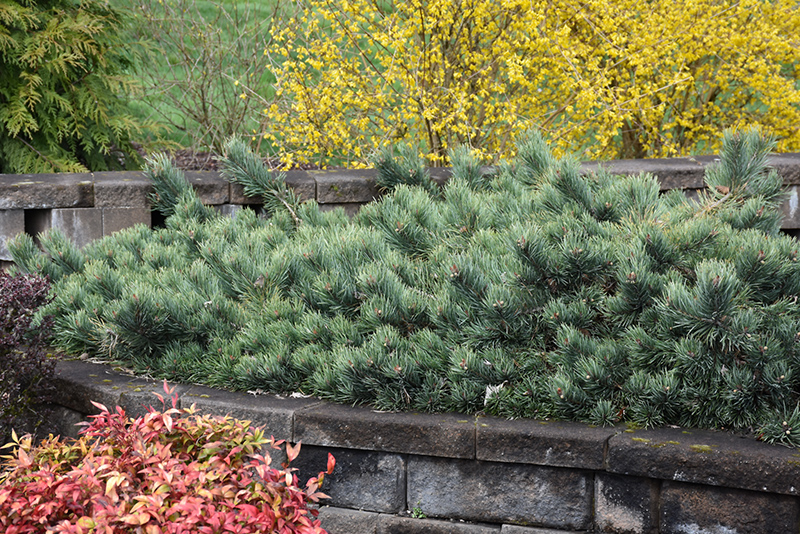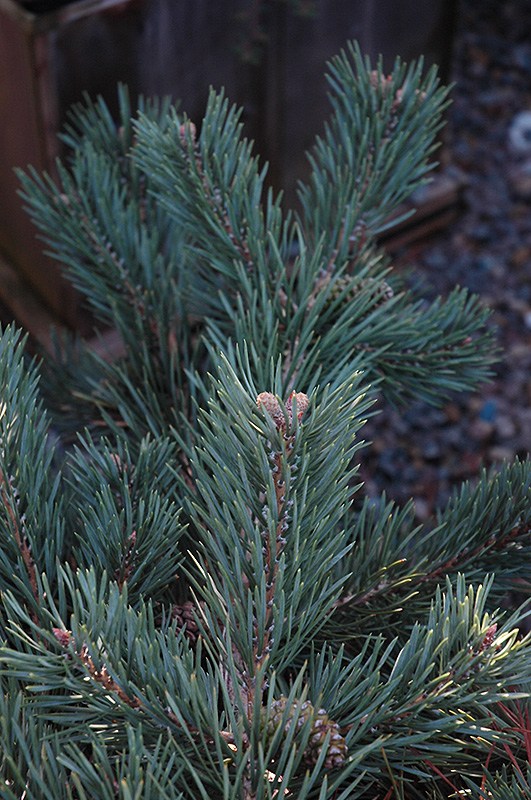3 feet
5 feet

3a
Scots Pine
Albyn Prostrate Scotch Pine is a dwarf conifer which is primarily valued in the garden for its broadly spreading habit of growth. It has rich green evergreen foliage. The needles remain green throughout the winter.
Albyn Prostrate Scotch Pine is a multi-stemmed evergreen shrub with a ground-hugging habit of growth. Its relatively fine texture sets it apart from other landscape plants with less refined foliage.
This is a relatively low maintenance shrub. When pruning is necessary, it is recommended to only trim back the new growth of the current season, other than to remove any dieback. Deer don't particularly care for this plant and will usually leave it alone in favor of tastier treats. It has no significant negative characteristics.
Albyn Prostrate Scotch Pine is recommended for the following landscape applications;
- Mass Planting
- General Garden Use
- Groundcover
Albyn Prostrate Scotch Pine will grow to be about 3 feet tall at maturity, with a spread of 5 feet. It has a low canopy. It grows at a medium rate, and under ideal conditions can be expected to live for 40 years or more.
This shrub should only be grown in full sunlight. It prefers dry to average moisture levels with very well-drained soil, and will often die in standing water. It is considered to be drought-tolerant, and thus makes an ideal choice for a low-water garden or xeriscape application. It is not particular as to soil type or pH. It is highly tolerant of urban pollution and will even thrive in inner city environments. This is a selected variety of a species not originally from North America.

